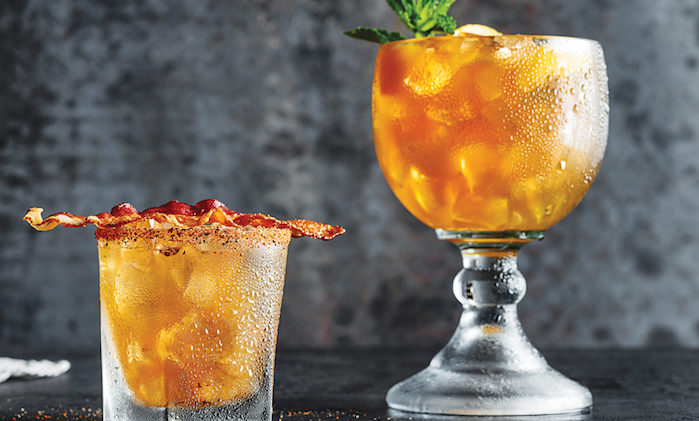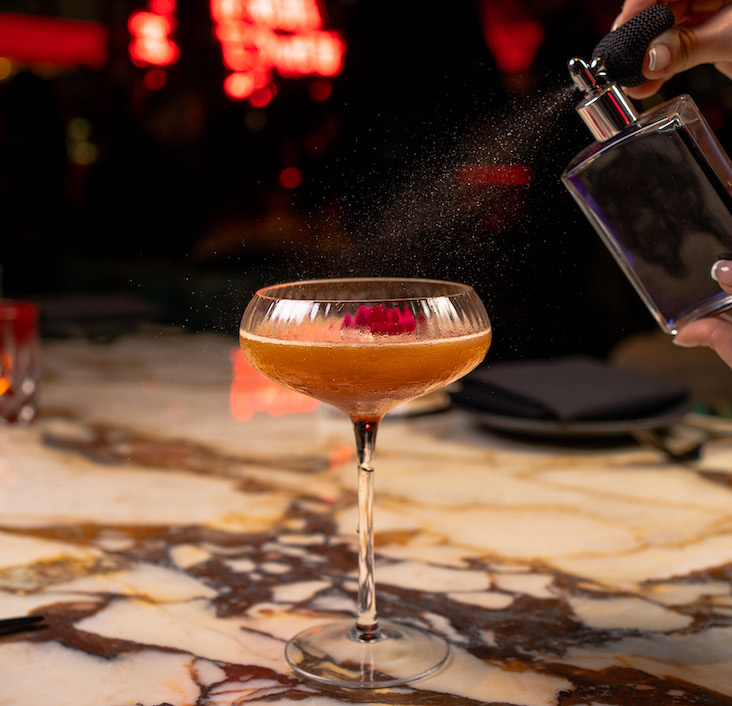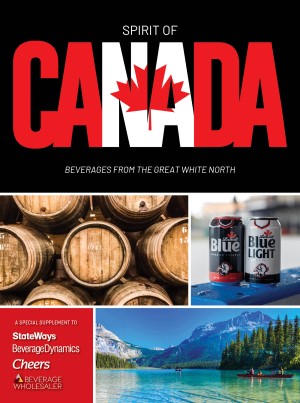The struggle is real for casual-dining restaurant brands. Not only did sales suffer during the Great Recession, but when the economy rebounded, many customers failed to return for a number of reasons.
One is the increasing competition from fast-casual restaurants. Home delivery is also now taking a bite out of casual dining traffic.
Then there’s the challenge of trying to appeal to fickle Millennial consumers, who—if they do go out to sit-down restaurants at all—seek to patronize establishments with a unique brand story and local or craft offerings.
So how does a struggling, 46-year-old national chain compete today? For Ruby Tuesday, it means going back to its roots and emphasizing Southern cuisine and hospitality.
The Maryville, TN-based restaurant brand earlier this summer revamped its menu to include items that reflect its heritage, from pimento cheese queso and chips and barbeque pork meatballs to Nashville hot shrimp and hickory bourbon-glazed entrees. “Our goal is to have the beverage line up with food, in terms of southern flair,” says Angie Heig, Ruby Tuesday’s senior vice president of marketing.
That means spiked sweet-teas and lemonades and an emphasis on bourbon cocktails. “We’re going to lean into the things that we do well,” Heig says.

How does a national casual-dining chain compete today? For Ruby Tuesday, it means going back to its roots and emphasizing Southern cuisine and hospitality.
Tennessee Roots
Entrepreneur Samuel “Sandy” Beall and a few college friends opened the first Ruby Tuesday restaurant near the University of Tennessee’s Knoxville campus in 1972. Named for the Rolling Stones song, Ruby Tuesday expanded rapidly and was acquired by cafeteria/chain operator Morrison in 1982.
Morrison spun off Ruby Tuesday as a public company in 1996. The chain reached about 1,000 locations just prior to the financial crisis of 2008.
But it’s been a rough decade for the chain, as the economic turmoil, increased competition and shifts in consumer preferences and dining behaviors took a toll on revenue. Forays into other brands, including Lime Fresh Mexican Grill, a fast-casual concept that Ruby Tuesday purchased in 2012, did not pan out.
Beall stepped down as president/CEO/chairman in 2012. The company has since had a revolving door of CEOs and has closed more than 100 Ruby Tuesday locations just in the past year. It now operates 540 units in the U.S.
A New Day
Investment firm NRD Capital bought Ruby Tuesday in a $335 million deal this past December and took the company private. NRD brought in a whole new team, including Ray Blanchette, who started as CEO of Ruby Tuesday in January.
Blanchette, most recently CEO of Au Bon Pain, has been credited with revitalizing Joe’s Crab Shack and developing the Brick House Tap & Tavern concept when he was CEO of Ignite Restaurant Group. He also spent 18 years at TGI Friday’s.
The adult beverage side of the business is important to Blanchette, Heig says. Ruby Tuesday plans to substantially increase its liquor, beer and wine sales as a percentage of the business in the next few years, she notes.
How? By adding several incremental cocktails a day per store, Heig says. The chain aims to bring up the energy level of the bar through innovative offerings and improved service to enhance the overall guest experience.
Relaxers, Tipsy Teas and Spiked Lemonades
The chain’s new positioning stresses warm welcomes from the staff, fresh, full-flavored entrees, triple prime burgers and bourbon. Beverages lean towards porch punches, lemonades, teas and “relaxers.”
The top-selling cocktail is the signature Ruby Relaxer. Launched in the early 1980s, the drink is made with peach schnapps, vodka, coconut rum, pineapple juice and cranberry juice.
Other cocktails in the Relaxer category include the Island Mai Tai (Cruzan rum, triple sec, sweet lime juice, orange and pineapple juices and a splash of Myers’s dark rum); the Cucumber Cooler (Hendrick’s gin, St. Germain elderflower liqueur, diced cucumbers, mint and a splash of soda); and the Coastal Mojito (fresh mint, lime juice, Barcardi superior rum and club soda). Relaxer drink prices range from $6 to $8.

Ruby Tuesday’s handcrafted lemonades, available in Strawberry, Raspberry, Wild Berry, Peach, Mango and Blueberry flavors, can be spiked with Tito’s vodka or Jack Daniel’s whiskey.
The second-best selling cocktail is the handcrafted lemonade with Tito’s vodka ($4.99). The lemonade, available in Strawberry, Raspberry, Wild Berry, Peach, Mango and Blueberry flavors, sells for $4 without alcohol.
Guests can also now opt to spike the lemonade with Jack Daniel’s whiskey for $4.99, Heig says. “Tito’s and Jack Daniel’s are the top name brands in casual dining,” she notes. When guests trade up from the well spirits, “they buy up to them.”
The fresh-brewed teas, available in five flavors, are also key to the beverage program. The summer/fall 2018 drink menu offers a Grownup Peach Tea (Jack Daniel’s, sweet tea and peaches) for $6.49, and a Summer Bourbon Sour (Knob Creek bourbon, fresh lemon sour, spices and a crispy bacon slice), priced at $6.99. (Both drinks are pictured atop.)
In revamping the beverage menu, Ruby Tuesday is pulling back on some of the cocktails that aren’t doing well, such as a citrus shandy beer cocktail and an apple whisky-based cooler. Some of those drink styles and flavors are more like seasonal fads, Heig says.
Value Proposition
“We want to be known for our value offering,” Heig says. For a while Ruby Tuesday was raising prices on drinks because traffic and sales were down. But the strategy has shifted to lower pricing, more promotional offers and a better value proposition for guests.
Ruby Tuesday ran a test in early summer offering a cocktail made with well liquor and mixer; a draft beer or glass of house wine—each priced at just $3. That’s just 20 cents more than the restaurant’s regular lemonade, Heig says.
While it found that $3 was priced too low to make money, the chain determined it could profitably offer the beverages for $4—and provide the option for guests to upgrade to larger pours or better liquor.
Under the $4 Drinks, All Day Every Day menu, which launched in early August, customers can trade up to better premium liquor for $1, $2 or $3 more.
Guest can also “supersize” the $4, 5-oz. pour of house cabernet or chardonnay to 8 oz. for an additional $2, and make the 12-oz. draft beer a 20-oz. “large” for $1 extra, or a 24-oz. “mega” for an additional $2.

Ruby Tuesday rolled out several new promotions in August, including $4 Drinks, All Day Every Day, $5 Daily Drink Specials and Happy Hour specials on select beverages and appetizers.
The house wine is currently Black Box. Other wine brands offered at Ruby Tuesday include Beringer white zinfandel (priced at $5 for a 5-oz. glass; $7 for 8 oz. and $18 for a bottle); Chloe pinot grigio ($8.50, 10.50 and $28); and Kendall-Jackson chardonnay ($9.50, $11.50 and $31).
Ruby Tuesday’s draft beers include Blue Moon, Samuel Adams, Stella Artois, Miller Lite, Bud Light and Yuengling. Bottled beers include Sam Adams, Lagunitas IPA, Guinness Draught, Fat Tire, Budweiser, Michelob Ultra, Corona Extra and the major macro light beers. Prices vary by location.
Ruby Tuesday also rolled out a $5 Daily Drink Special: Sangria Monday; Top-shelf Tuesday (Margaritas); Relaxer Wednesday (Ruby Relaxers); Tiki Thursday (Mai Tais); Old Fashioned Friday (made with Beam or Maker’s Mark), and Tito’s RT Palmers on Saturdays and Sundays.
As part of the special, the Sangrias, Ruby Relaxers and Mai Tais can be upgraded to a large for $1 more.
The chain’s Happy Hour, offered at most locations from 4 p.m. to 7 p.m. and 9 p.m. to close, promotes $2 domestic draft beers, $3 Classic Ruby Margaritas, $4 red or white Sangrias and $5 Relaxers (which can be made large for another $1).
Select appetizers—Spinach Artichoke Dip, Crispy Buttermilk Chicken Bites and Loaded Potato Chips—are priced at $4 during Happy Hour.
Ruby Tuesday’s goal with the food and beverage promotions? “Simple, straightforward value with an affordable upsell,” Heig says.
Southern Charm
Ruby Tuesday unveiled 25 menu items in June. These range from lunch combinations starting at $6.99 and new offers featuring the chain’s Fresh Garden Bar to more than eight new starters with a Southern accent.
For example, new appetizers on the summer menu include Bacon Deviled Eggs, Spicy Pork Rinds (both $3.99 each) and Carolina Gold BBQ Wings ($9.99). Entrees that reflect the flavors of the South include Nashville Hot Chicken, Sweet-tea-glazed Ribs (both $17.99) and Cajun Grilled Shrimp & Rice ($15.99).
In addition to the bourbon-centric menu items, Ruby Tuesday also aims to convey its theme through friendly service and a high-energy atmosphere. It wants to be a place that people think of when they want to enjoy a good time, with good service, food and drinks offered at good prices, Heig says.
“We’re leaning into our Southern culture,” she notes, and adult beverages are a big piece of the plan. “We have a lot of incremental drinks to sell.”
Melissa Dowling is editor of Cheers magazine. Reach her at mdowling@epgmediallc.com. Read her recent piece How to Mix With White Vermouth.







